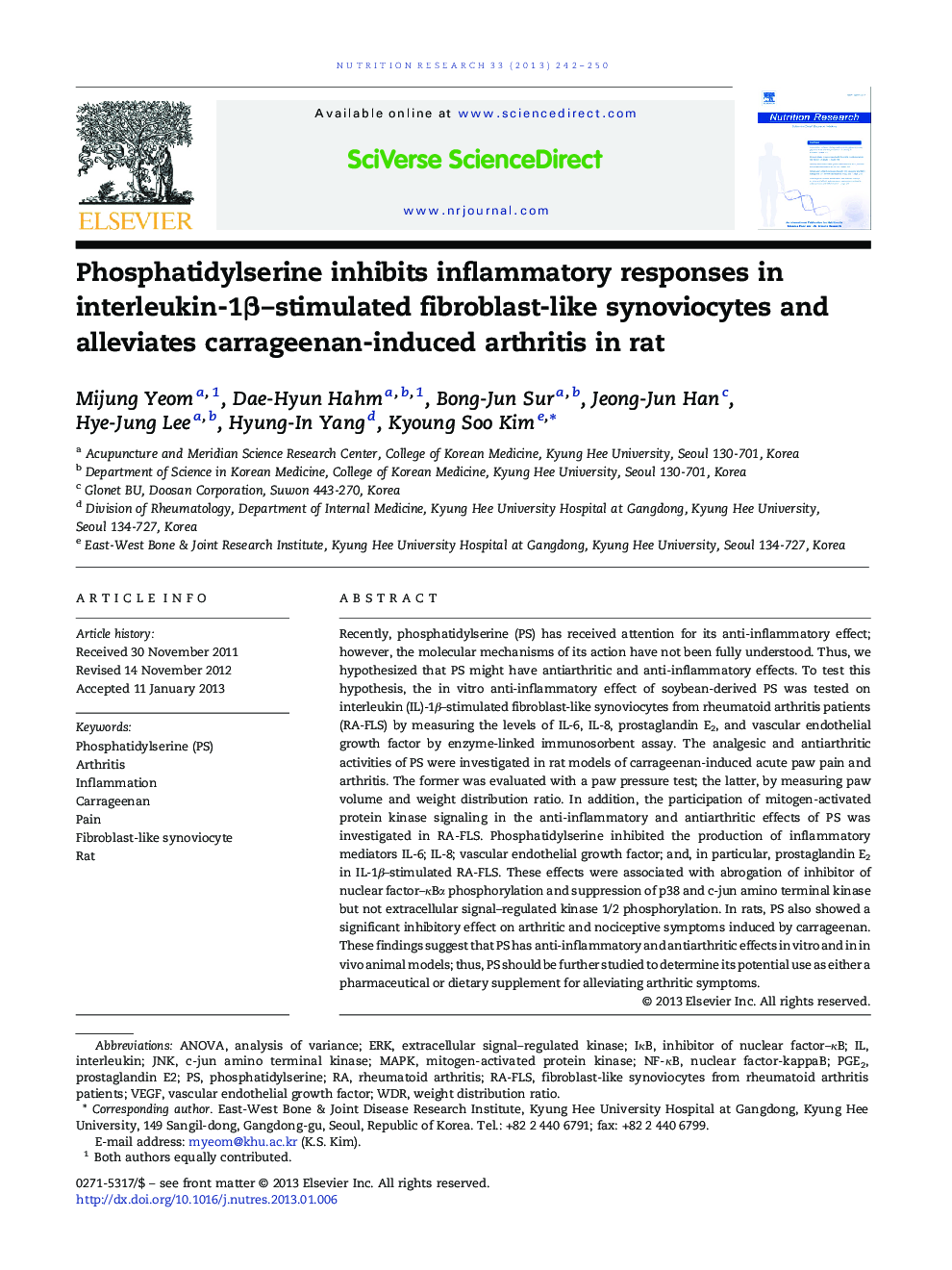| Article ID | Journal | Published Year | Pages | File Type |
|---|---|---|---|---|
| 5904567 | Nutrition Research | 2013 | 9 Pages |
Abstract
Recently, phosphatidylserine (PS) has received attention for its anti-inflammatory effect; however, the molecular mechanisms of its action have not been fully understood. Thus, we hypothesized that PS might have antiarthritic and anti-inflammatory effects. To test this hypothesis, the in vitro anti-inflammatory effect of soybean-derived PS was tested on interleukin (IL)-1β-stimulated fibroblast-like synoviocytes from rheumatoid arthritis patients (RA-FLS) by measuring the levels of IL-6, IL-8, prostaglandin E2, and vascular endothelial growth factor by enzyme-linked immunosorbent assay. The analgesic and antiarthritic activities of PS were investigated in rat models of carrageenan-induced acute paw pain and arthritis. The former was evaluated with a paw pressure test; the latter, by measuring paw volume and weight distribution ratio. In addition, the participation of mitogen-activated protein kinase signaling in the anti-inflammatory and antiarthritic effects of PS was investigated in RA-FLS. Phosphatidylserine inhibited the production of inflammatory mediators IL-6; IL-8; vascular endothelial growth factor; and, in particular, prostaglandin E2 in IL-1β-stimulated RA-FLS. These effects were associated with abrogation of inhibitor of nuclear factor-κBα phosphorylation and suppression of p38 and c-jun amino terminal kinase but not extracellular signal-regulated kinase 1/2 phosphorylation. In rats, PS also showed a significant inhibitory effect on arthritic and nociceptive symptoms induced by carrageenan. These findings suggest that PS has anti-inflammatory and antiarthritic effects in vitro and in in vivo animal models; thus, PS should be further studied to determine its potential use as either a pharmaceutical or dietary supplement for alleviating arthritic symptoms.
Keywords
PGE2c-jun amino terminal kinaseWDRIκBERKNF-κBJnkMAPKArthritisRheumatoid arthritisinflammationinterleukinanalysis of varianceANOVAPainVascular endothelial growth factorVascular Endothelial Growth Factor (VEGF)nuclear factor-kappaBPhosphatidylserinephosphatidylserine (PS)fibroblast-like synoviocyteRatmitogen-activated protein kinaseProstaglandin E2CarrageenanExtracellular signal–regulated kinase
Related Topics
Life Sciences
Biochemistry, Genetics and Molecular Biology
Endocrinology
Authors
Mijung Yeom, Dae-Hyun Hahm, Bong-Jun Sur, Jeong-Jun Han, Hye-Jung Lee, Hyung-In Yang, Kyoung Soo Kim,
